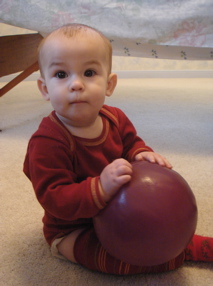Pain As A Positive, Part Two: Using Pain Positively
Few things are as painful as nerve pain from irritated spinal disks. It shoots, burns, and temporarily cripples. I was physically unable to sit, stand, or lie down for about 36 hours. Being on knees and elbows in total darkness left me unable even to read, totally awake hour after hour with no distractions. Each day bled into the next.
I practiced:
- Finding one spot that didn’t hurt and building sensation out from there, relaxing every place I could.
- Getting my breath down into areas of my body where I did not used to feel fully, activating body parts and organs and increasing my ability to Sense.
- Viewing this difficult time as having value.
Being able to do nothing freed up my sense of time. My habits and patterns were all out of commission. Un-creating our lives and getting off the treadmill of have-tos and all the things we think we need to do and to be creates perspective and opportunities for spiritual growth. I could not use my time as I might wish, but was temporarily released from the necessity and addiction of managing it.
Intentionally making the Observer function far larger than the parts of us that are in pain–by becoming open and curious and releasing resistance to pain–the pain often shrinks down. It may even go away. Mine remained, but my exercises in awareness made it manageable.
I used the pain and period of incapacity to:
- Focus on my Inner Work*
- Develop compassion–for myself and for the suffering of others
- Release pride–I was literally on my knees
- Explore deeper issues about receiving support
- Clear energy blocks related to self-love and support
- Learn how to ask for and receive assistance more gracefully
- Develop gratitude for things I was taking for granted
- Do profound energy work including clearing out energy from clients
- Find the inner strength to remain authentic in a painful passage in relationship
- Find and learn from new healers
- Learn more how to manage pain and help others with pain
- Practice positive spiritual surrender (not giving over—acceptance)
In addition to icing fifteen minutes out of every hour, I maintained a cleansing diet  high in fish oil and antioxidants to reduce inflammation, built up levels of vitamin D and minerals, and used enzyme supplements that eat up pathogens as well as inflammation.
high in fish oil and antioxidants to reduce inflammation, built up levels of vitamin D and minerals, and used enzyme supplements that eat up pathogens as well as inflammation.
These approaches will be a net gain for my whole body.
A friend who had grown distant stepped in to help me. She practiced new found and profound healing skills that she would otherwise have been shy about sharing. Her loving service reestablished and deepened our friendship.
Always remember:
- Resistance is the only pain we can spare ourselves.
- Letting go of intense desires for life, people, or situations to be different than they actually are can alleviate suffering.
- Don’t waste your pain.
*I will post on Inner Work after the Pain series. Also see Inner Work as Universal Service
What benefit have you been able to create in painful circumstances?



















